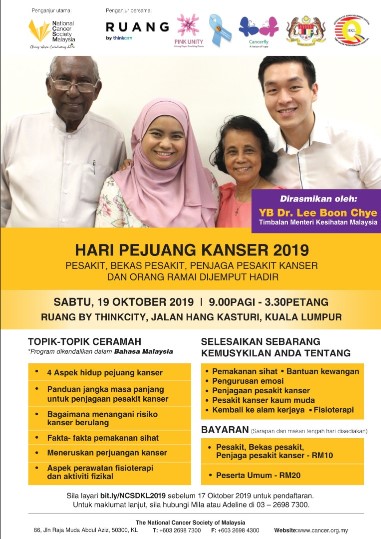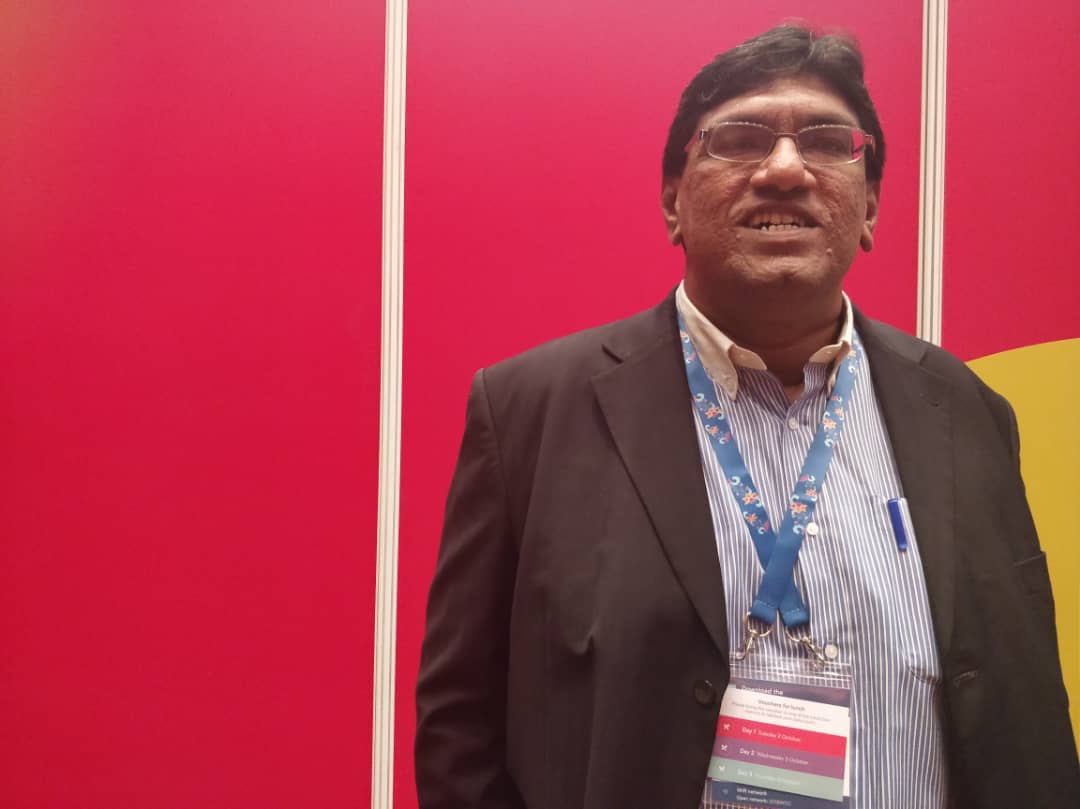
Catastrophic events happen to people suddenly, and in that moment of calamity your very life may hang by a thread. Tsunamis, earthquakes and even car crashes are catastrophic events, and so are catastrophic health events like a heart attack and yes, cancer.
Because these events are of such magnitude to an individual, they are often also called ‘life-changing’ events; changing the victim of this calamitous event in many ways.
Interestingly if you thought about it, people who survive heart attacks or car crashes don’t walk around wearing t-shirts proclaiming that I am a ‘heart attack’ survivor or a ‘car crash’ survivor. Cancer patients do. The question then, is “What’s so special about surviving cancer?”
Well for one, even the term survivor is special in cancer as opposed to any other context or condition. In all other contexts, survivors are ‘individuals who have endured an ordeal, especially in terms of remaining alive after an event in which others have died’.
In cancer however, the US National Cancer Institute, the US Centres for Disease Control and Prevention and the National Coalition categorically state that survivorship starts at the time of diagnosis and last through the lifespan of the individual (1). This term is even extended to include caregivers and family members of cancer survivors, where acceptable (1). This is the distinction that separates a cancer survivor from all other ‘survivors’, because this is an ongoing journey for life.
From the moment that you become a cancer survivor, your life and the life of those around you are changed; and this change persists for as long as you live. The journey for a cancer survivor does not end once treatment, be it chemotherapy or radiotherapy, ends (2).
It is a marathon, not a 100-metre sprint.
Many don’t realise this, and suffer from mental and physical ‘burn-out’ as they are unaware of the long challenges that lie ahead even after completion of treatment.
There are many new and complex issues which encompass survivorship; with some of the essential ones highlighted here (3): cancer recurrence, emergence of second primary cancers, long-term effects of treatment, late effects of treatment, and psychological well-being.
The biggest issue keeping survivors awake at night is the question of cancer recurrence. At the back of everyone’s mind who deals with cancer and successfully completes their treatment is the question, “Will IT come back?”
Cancer survivors need to keep to a surveillance regime; and many Malaysians think that this is no longer necessary because “I am now cured”. Each cancer survivor has a different recommended sex- and age-specific routine screening programme, and it is important that survivors are aware and adhere to it.
In addition to cancer recurrence, survivors also need to be concerned about the emergence of second primary cancers; cancers which have a higher risk of occurring due to the treatment of the first cancer. Hodgkin’s disease survivors, for example, are at risk for breast cancer due to the irradiation treatment they receive, thus they have to be screened from an early age of 25 rather than at 40 for the average person.
Long-term effects of treatment can begin during treatment and linger long after it; while late effects are side-effects which occur after the end of treatment. Radiation therapy, for example, causes late-effects of cardiovascular disease in patients years after treatment; and in childhood cancer patients, it is now increasingly emerging that treatment causes premature aging.
Long-term effects such as chronic pain, numbness, fatigue, loss of cognitive function and insomnia are sometimes easily dismissed as ‘malingering’ — a grave error on the part of all concerned. I myself have had patients who have been accused of, “ Haiya last time got cancer now cancer okay ready, still got so many problems… I think you just lazy to worklah…”
The greatest hidden burden of survivors, though, is the mental health issues that are the hidden iceberg of survivorship.
Depression, anxiety, post-traumatic stress disorder, difficult to return to work and financial issues are just some of the myriad issues that afflict cancer survivors.
Difficulty in reacclimatising after completing treatment may affect their mental health; as can things like unable to return to previous performance levels at work or even at normal activities outside work. Being bypassed in the workspace is yet another common issue for cancer survivors; and again these are seemingly unconnected issues which are actually really due to their cancer and nothing else.
Especially in Asian settings such as ours where people are more than a little shy to share about their mental health concerns, cancer survivors sometimes bear a silent burden as they are often thought to be ‘okay’ since they have completed treatment, with little being done to address the ‘huge’ mental health issues afflicting them, which make them ‘ not okay’.
Today, the good news is that more and more people are surviving cancer; thanks to advances in screening, diagnosis and clinical treatment. However, with this hard-won respite, arises a new set of worries in terms of survivorship challenges they have to face.
How does one improve their survivorship? The key, of course, is for survivors to be aware of their changing needs and keeping abreast of these changes. Of course, for the rest of us, increasing efforts in offering adaptations that enable us to accommodate and re-acclimatise survivors into our daily work and lives is also crucially important.
These systemic changes are what will enable the community of cancer survivors to continue on their long marathon of survivorship as they traverse the challenging trek one kilometre at a time.

National Cancer Survivors’ Day is a day-long programme running in Bahasa Malaysia and Mandarin in Ruang by Think City in Kuala Lumpur this October 19th, 2019 organised by the National Cancer Society of Malaysia. The event will be focused on providing sessions on survivorships to cancer survivors, caregivers and the general public.
NCSM is consciously running it for the first time in Bahasa Malaysia and Mandarin to cater for non-English speakers in order to address shortcomings in Malaysia where most information material and health education on cancer are only available in English. Find out more here.
References:
- National Cancer Institute. Office of Cancer Survivorship (http://cancercontrol .cancer .gov/ocs/).
- Shapiro CL. Cancer survivorship. New England Journal of Medicine. 2018 Dec 20;379(25):2438-50.
- Shapiro CL, Jacobsen PB, Henderson T, et al. ReCAP: ASCO core curriculum for cancer survivorship education. J Oncol Pract 2016; 12(2): 145, e108-e117.

Cancer Matters is a column on various issues related to cancer in Malaysia.
Dr Murallitharan M. is the Medical Director of the National Cancer Society of Malaysia (NCSM). He can be reached via email at [email protected]
- This is the personal opinion of the writer or publication and does not necessarily represent the views of CodeBlue.








